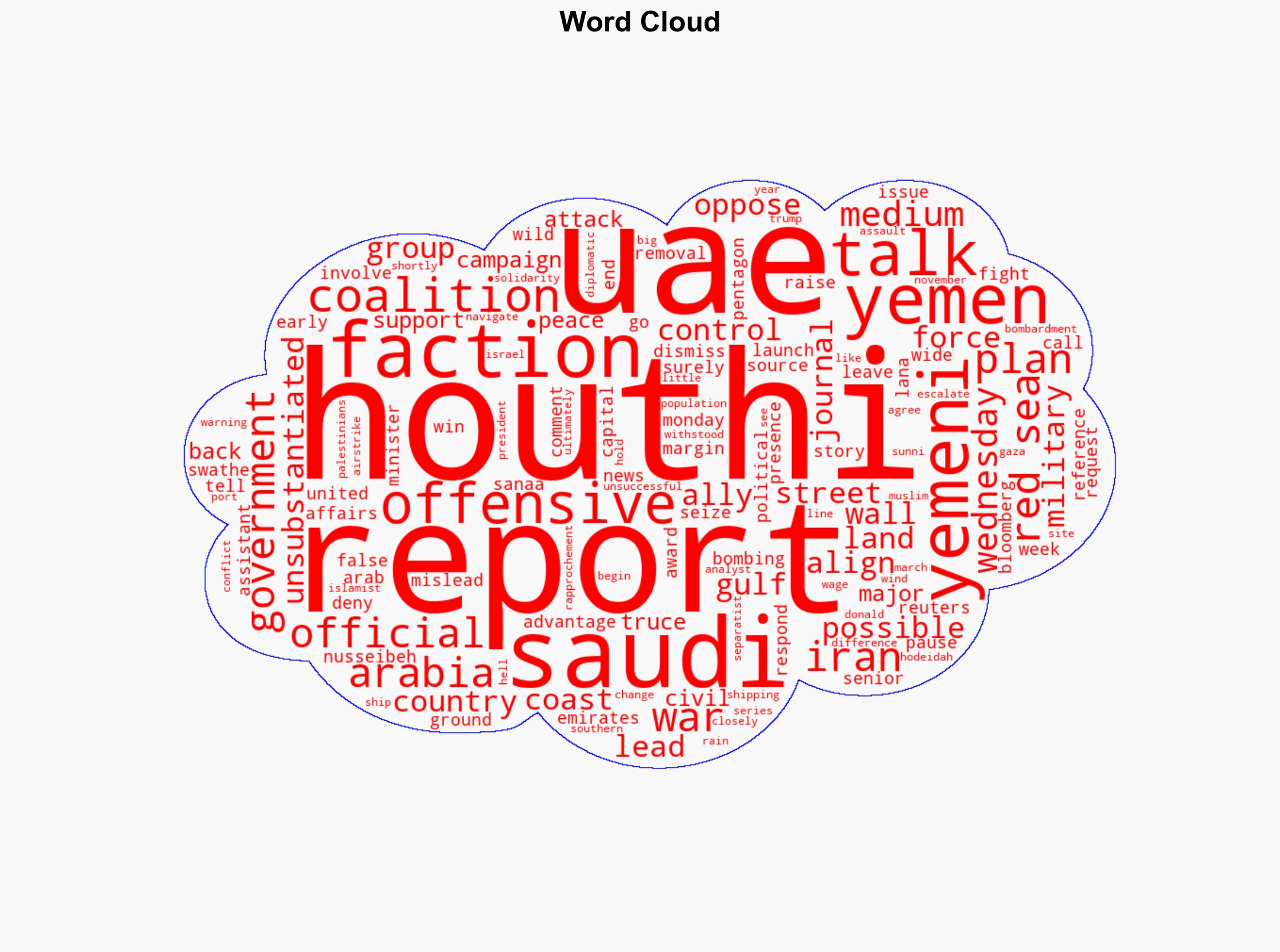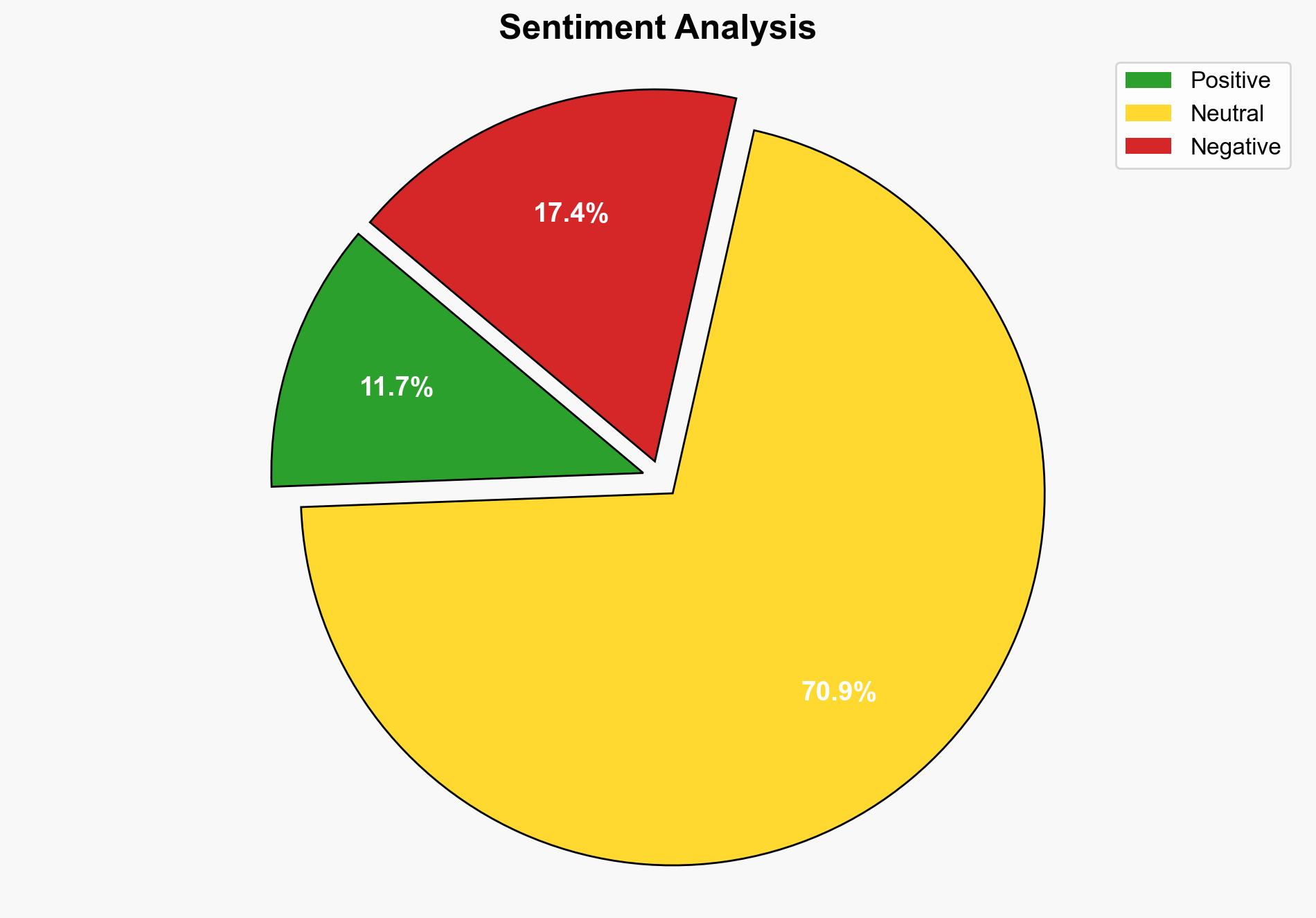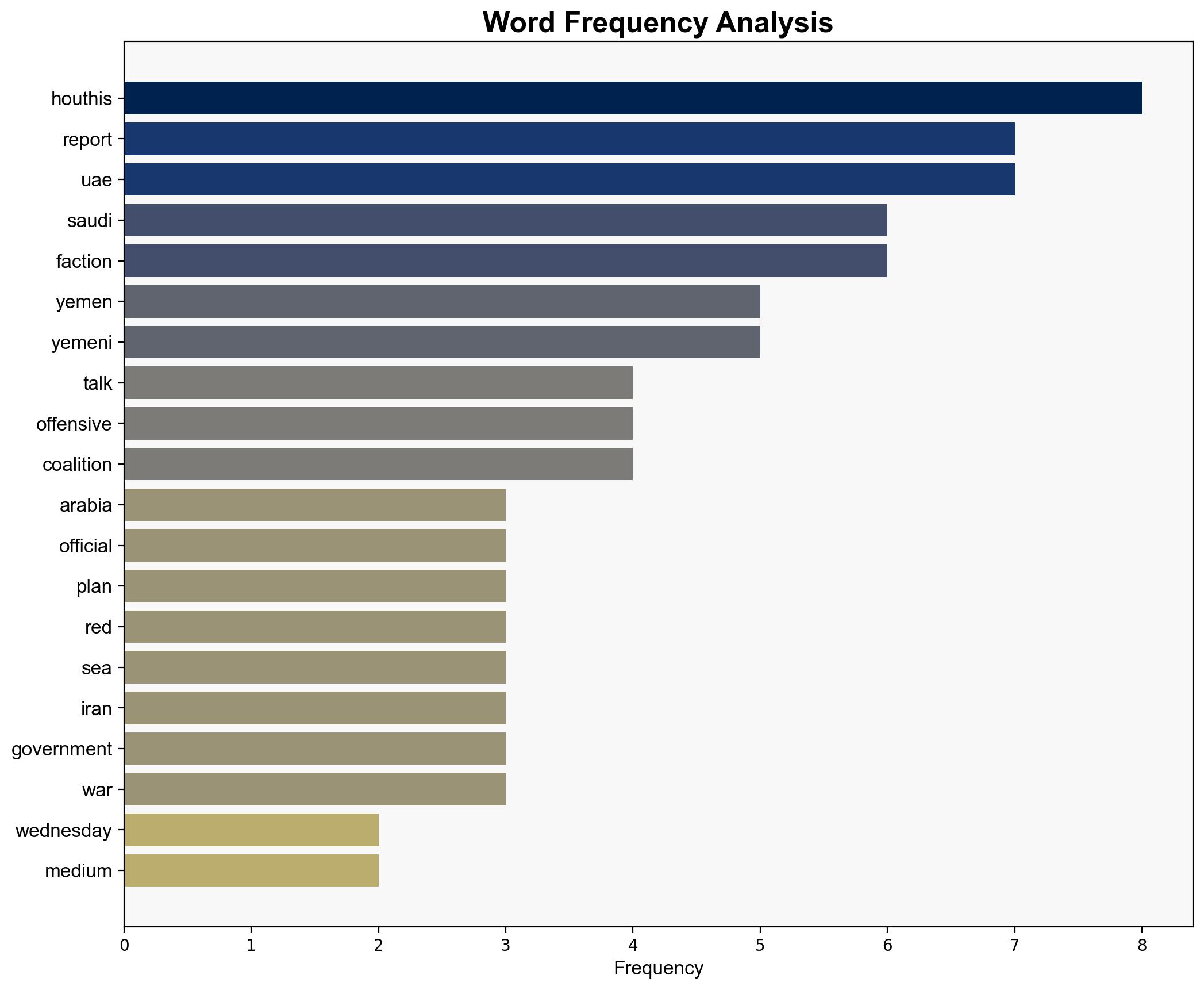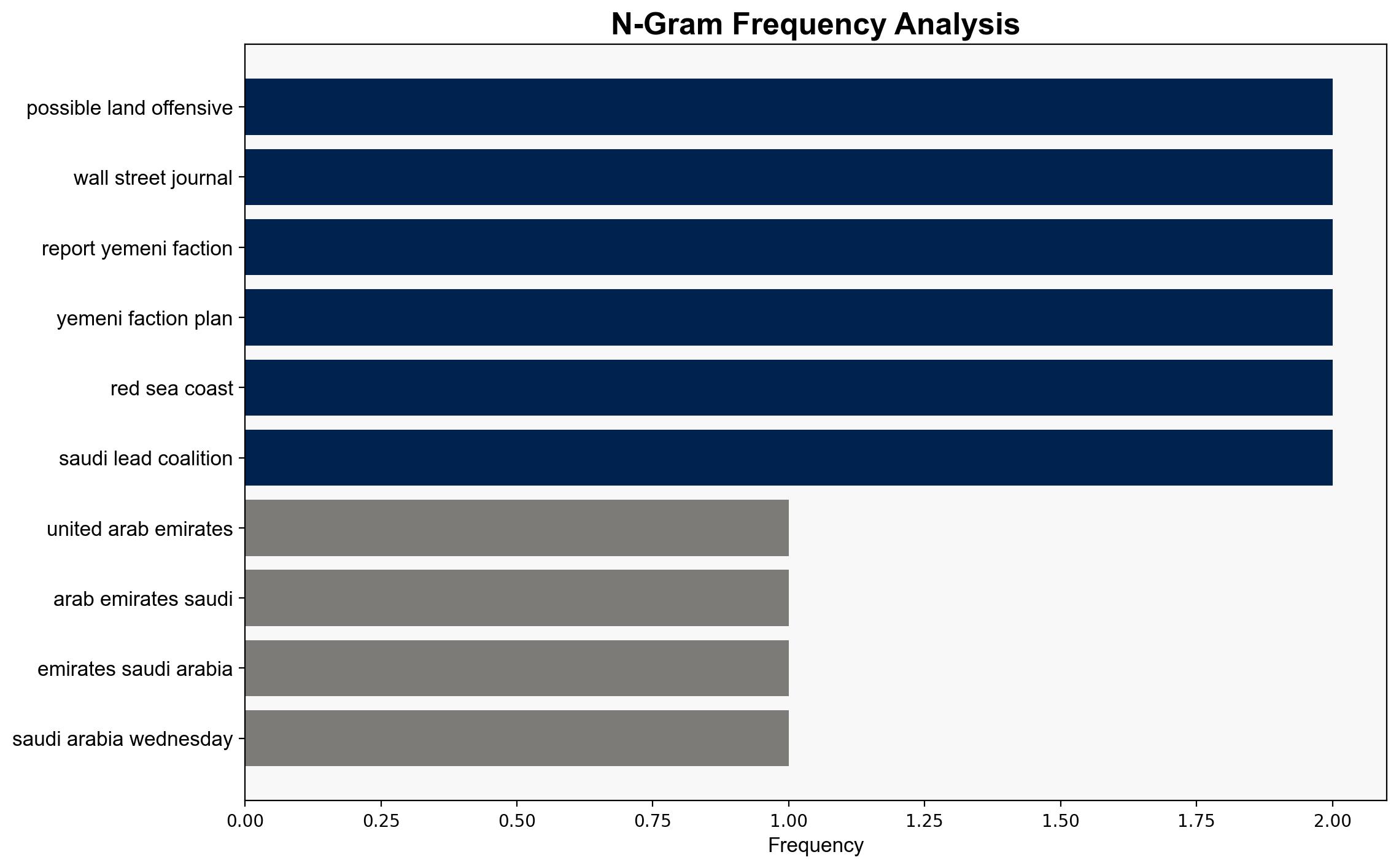UAE denies reports it is involved in talks about land offensive in Yemen – The Jerusalem Post
Published on: 2025-04-16
Intelligence Report: UAE denies reports it is involved in talks about land offensive in Yemen – The Jerusalem Post
1. BLUF (Bottom Line Up Front)
Recent reports suggesting UAE involvement in discussions with the US regarding a potential land offensive in Yemen have been denied by both UAE and Saudi officials. The strategic landscape in Yemen remains complex, with ongoing tensions between the Houthis and other regional actors. The denial highlights the sensitivity of regional alliances and the potential misinformation that can influence geopolitical dynamics.
2. Detailed Analysis
The following structured analytic techniques have been applied:
SWOT Analysis
Strengths: The UAE and Saudi Arabia have significant military capabilities and regional influence. Their denial of involvement in the reported talks may help maintain diplomatic stability.
Weaknesses: The ongoing conflict in Yemen has strained resources and complicated regional alliances, with differing interests among coalition partners.
Opportunities: Continued peace talks and truce efforts could stabilize the region and reduce humanitarian impacts.
Threats: Misinformation and unverified reports can escalate tensions and disrupt diplomatic efforts.
Cross-Impact Matrix
Events in Yemen, such as potential offensives, could impact Red Sea shipping lanes, affecting global trade. Regional instability may influence neighboring countries’ security and economic conditions.
Scenario Generation
Scenario 1: Continued peace efforts lead to a stable truce, reducing conflict and fostering economic recovery in Yemen.
Scenario 2: Renewed hostilities, fueled by misinformation, result in escalated military actions, impacting regional stability and international relations.
3. Implications and Strategic Risks
The denial of involvement in offensive talks underscores the importance of accurate intelligence in managing regional relations. Miscommunication or misinformation can lead to unintended escalations. The strategic risk includes potential disruption to Red Sea shipping and broader geopolitical tensions involving Iran and Gulf states.
4. Recommendations and Outlook
- Enhance intelligence verification processes to prevent misinformation from influencing policy decisions.
- Encourage diplomatic engagement among regional actors to sustain peace efforts and address underlying conflicts.
- Monitor developments in Yemen closely to anticipate shifts in the security landscape and prepare contingency plans.
- Scenario-based projections suggest that maintaining open communication channels can mitigate the risk of conflict escalation.
5. Key Individuals and Entities
Lana Nusseibeh, a senior UAE official, has publicly addressed the reports, emphasizing their inaccuracy. Other key figures include unnamed Saudi and US officials involved in regional discussions.




